We'll be at BSidesSeattle.
Let's grab coffee
Let teams
self-serve access
Oblique turns your Okta groups into a self-service IGA solution. Built-in justifications and previews make access explainable and changes safe. Fewer tickets, faster access.
For IT teams at mid-market organizations
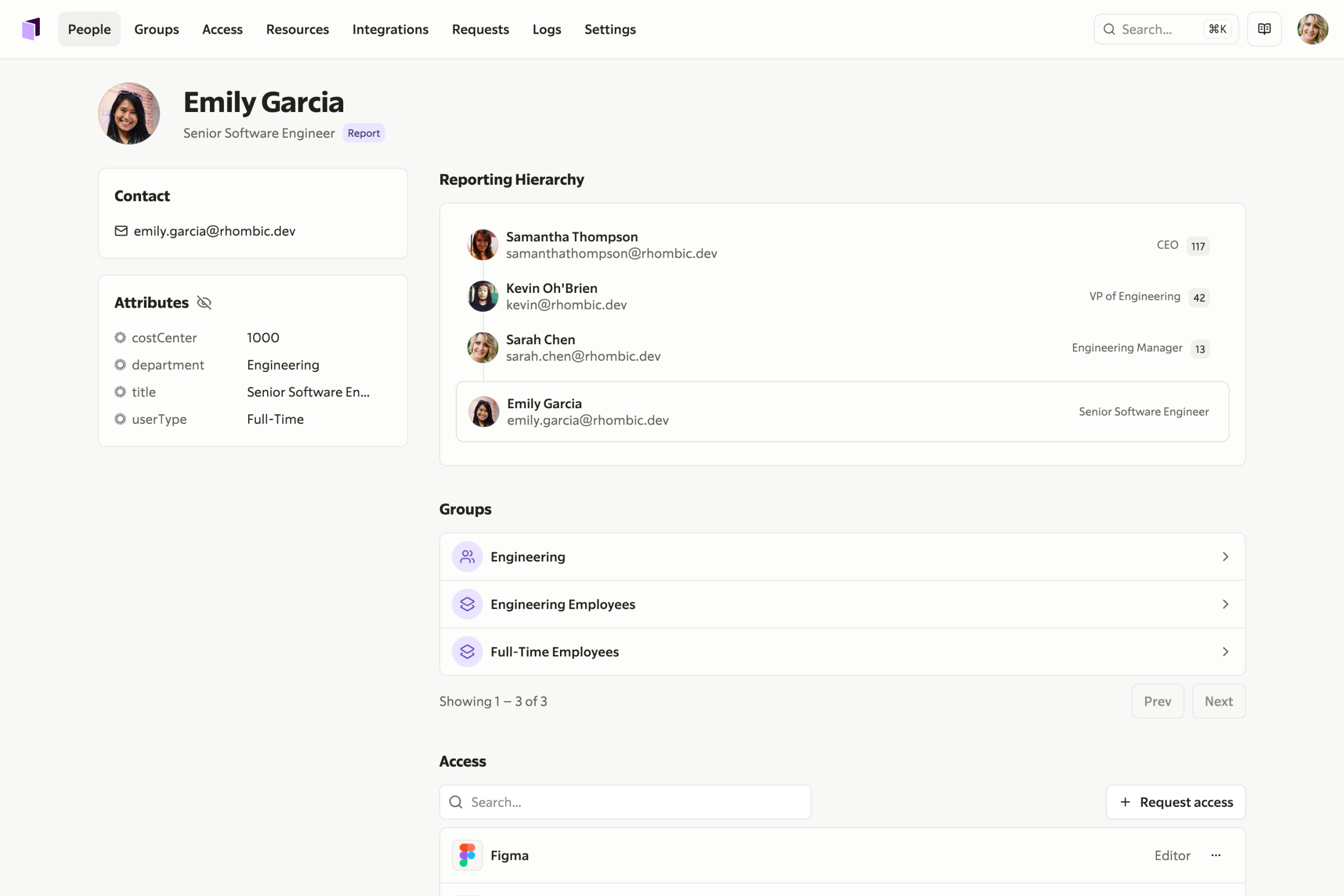
Why Oblique?
Scale access securely and automatically
IT teams are drowning in access request tickets from new hires, team changes, and reorgs. Oblique lets teams self-govern access while giving IT the controls they need to stay secure.
Explainable
See exactly how and why users have access
- See the full picture.
- Understand exactly how someone got access — whether it's direct, through a group, or via multiple paths — without digging through csv exports or logs.
- Get actual context, not useless freeform justifications.
- See clear, automatic justifications for access where you need them: in access reviews, audit logs, and everywhere else.
- Map access to how teams actually work.
- Go beyond managers and departments, and define permissions based on cross-functional teams and projects — the way work really gets done.
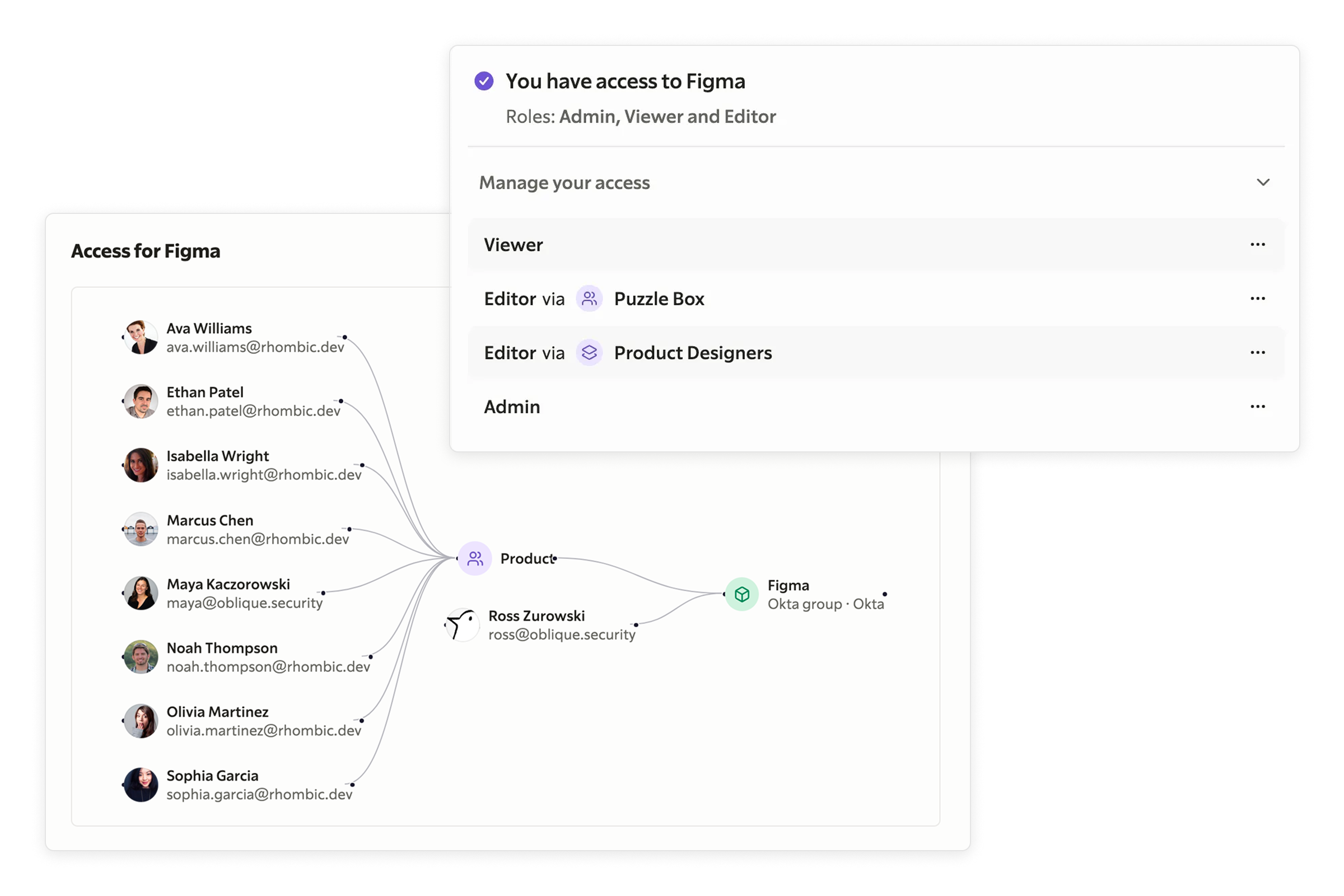
Safe
Preview changes before they break someone's day
- See exactly who's affected — or not.
- Preview which users gain or lose access before applying changes, so a Workday typo doesn't lock everyone out of Slack.
- Catch dangerous changes automatically.
- Alert when a change impacts too many users or when it would grant access to your production AWS environment.
- Require approvals when you need them.
- Set up approval workflows for changes based on your security and compliance requirements.
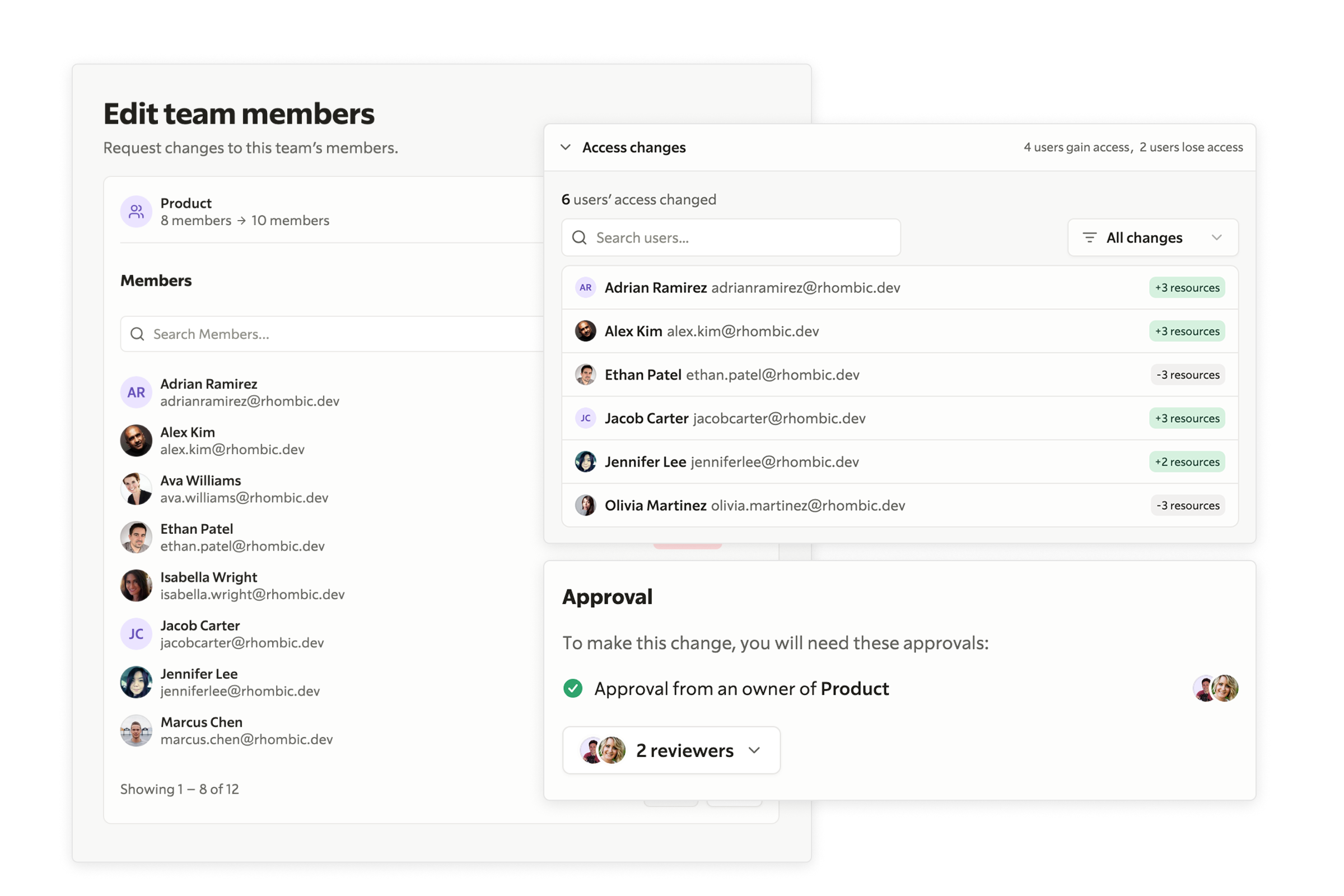
Self-service
Stop being the bottleneck for access changes
- Empower teams to manage their own access.
- Cut tickets beyond just access requests. Users can create teams, add members, and assign owners without involving IT.
- Give users the tools to debug themselves.
- Instead of endless Slack threads asking "why can't I access Figma?", users can see their permissions and fix issues directly.
- Put decisions in the right hands.
- Team leads manage their people, app owners control their resources, and you only step in when exceptions arise.
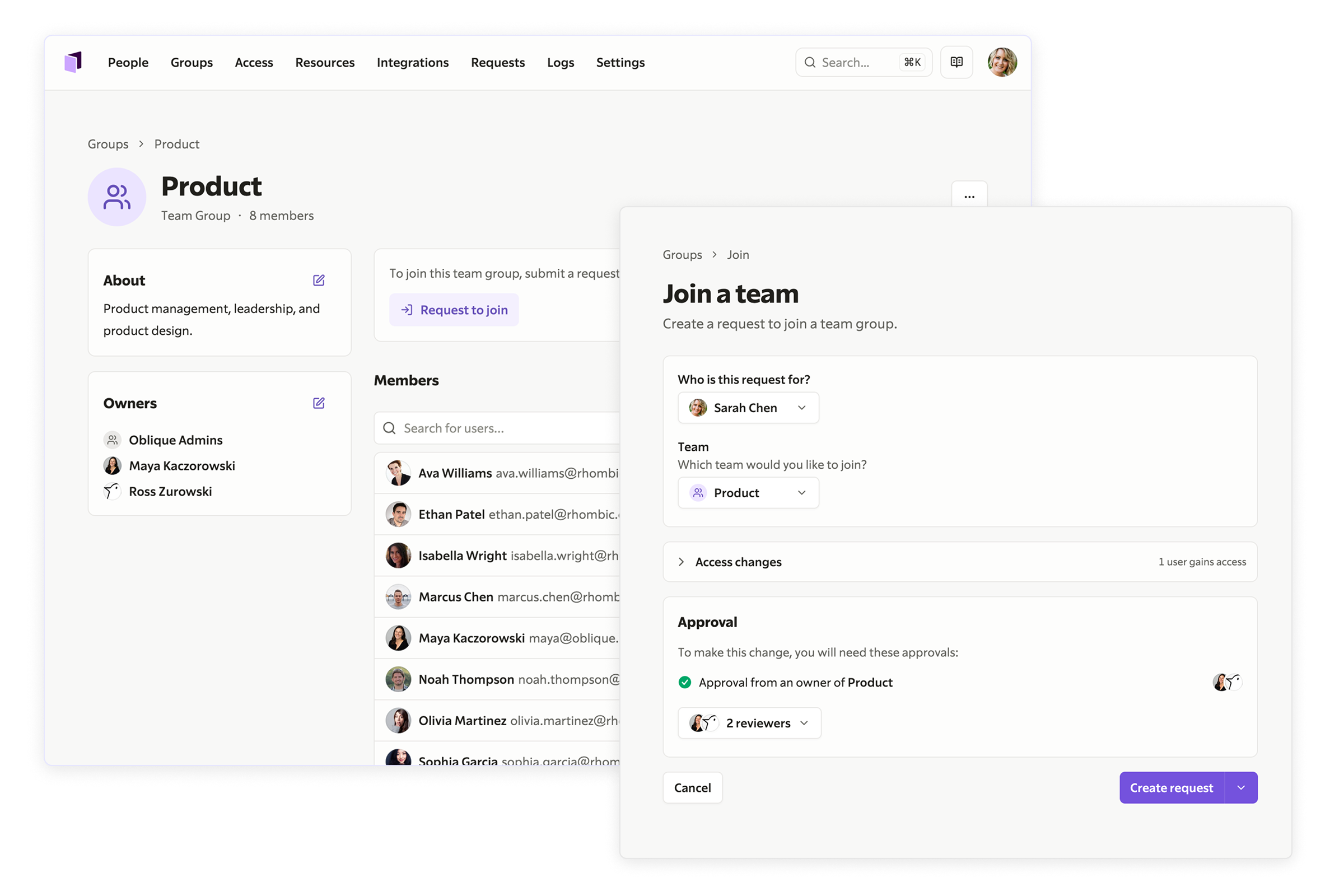
Stay updated
Get the latest product news and updates
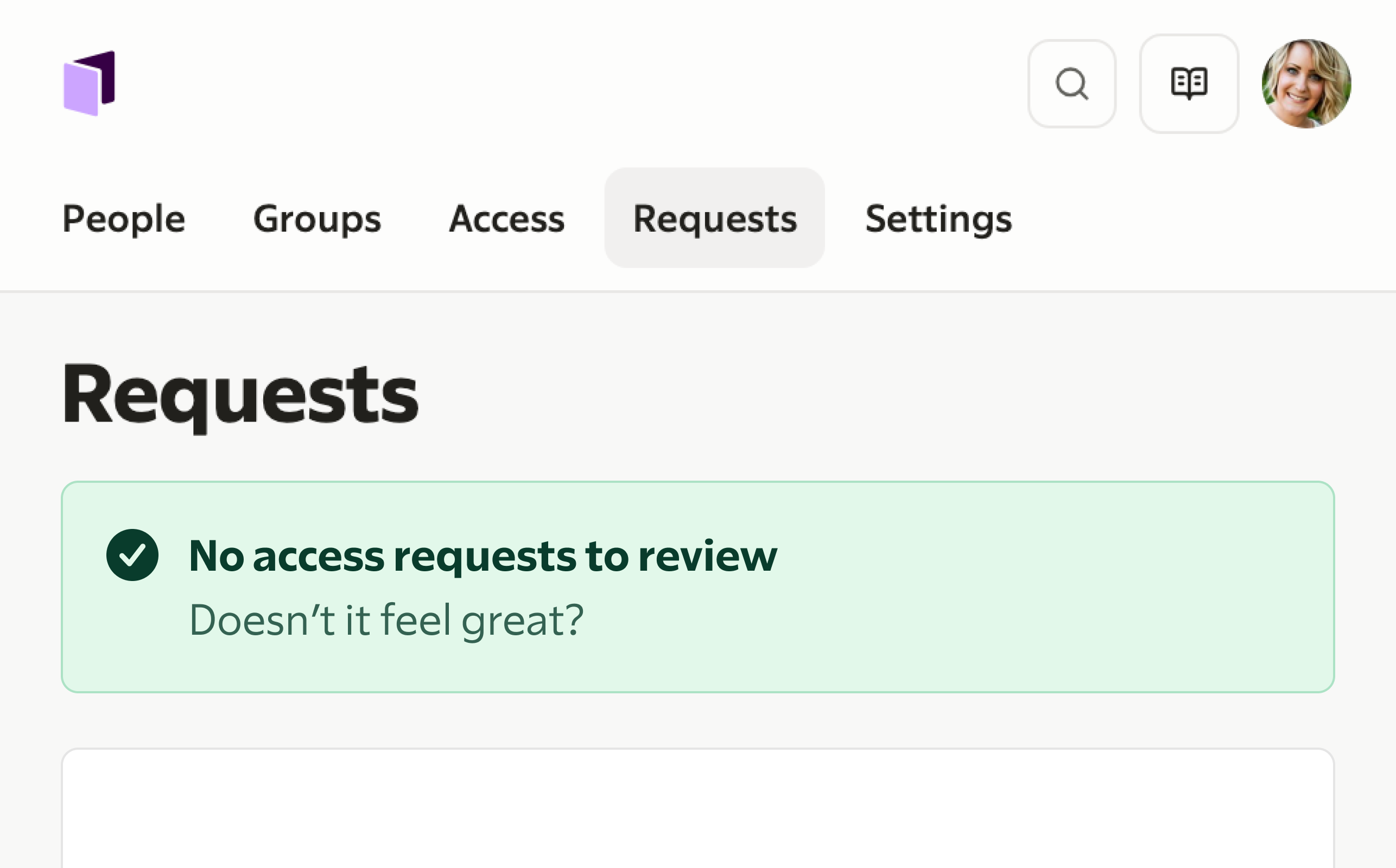
Ready to simplify access management?
Experience the joy of fewer IT tickets
We’d love to help you get to more maintainable access controls